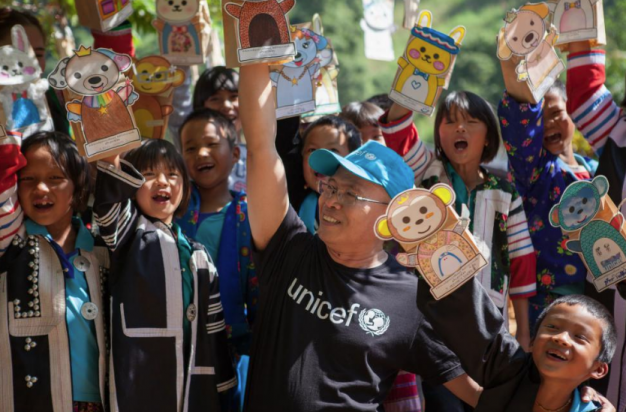
UNICEF project to promote children’s rights in Vietnam
Ensuring the rights of children in Vietnam’s cities, including access to basic provisions, is at the heart of a new UNICEF project.
UNICEF says it wants to work with the government to help the country build a legal environment with comprehensive policies through its Protecting and Promoting the Rights of Children in Vietnam scheme.
With more than 17 million US dollars in funding available, it will be instigated between now and 2021 in Da Nang city and Lao Cai, Dien Bien, Kon Tum, Gia Lai and Dong Thap provinces. It will be a collaborative effort between UNICEF and the MInistry of Labour, Invalid and Social Affairs (MOLISA), which will work with other national and local government agencies.
Poverty
Its core aim is to assure children’s rights policies are implemented, as well as renew social security measures to address poverty. The project will also support child protection and social work for children policies. The funding is from UNICEF’s official development assistance (ODA), an important source of financing for children in many low income countries, as it provides additional scope to basic social services and infrastructures that are so critical to a child’s wellbeing.
This is also an area which will complement discussions next month’s 9th Child in the City World Conference in Vienna. The themes of children’s rights in urban development and regeneration and equality and diversity in the child-friendly city will both explore aspects of how and why children continue to live in poverty worldwide.
Framework
Millions of Vietnamese children are either short of or have no access to education, health care, nutrition, housing, clean water, environmental hygiene, and social integration. Nguyen Thi Ha, Thailand’s Deputy Minister of Labour, Invalid and Social Affairs, told the UNICEF launch that the country’s current legal framework still had many gaps that needed addressing.
Dealing with the issues and promoting children’s rights, Ha added, was vital if Vietnam is to become a mid-income nation. This means dealing with inequality, including a lack of standards, regulations and processes for a comprehensive health care system, different statistics of children’s rights among ministries and branches, and limited allocation and use of human resources to carry out children’s rights.
Limitations
The social security system and social support in particular have also shown limitations, resulting in the ineffective implementation of measures to protect children with special circumstances. She added that public awareness of children’s rights and social involvement in handling child-related issues remains limited.
“In the forthcoming time, we should promote the work of collecting the statistic data correctly in order to build the law and policies for children more effectively,” said Ha.
- Have you registered to attend the 9th Child in the City World Conference 2018? It takes place in Vienna from September 24-26. Visit the website for the full conference programme and details of how to attend.
Feature Image: unicef.org/thailand




